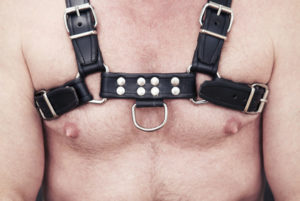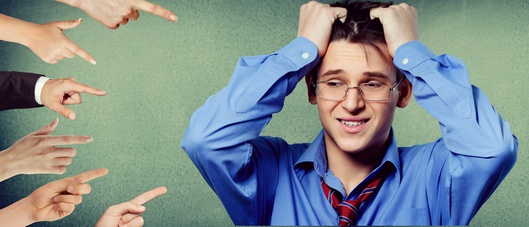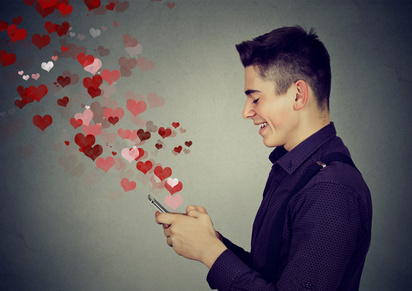Fear of rejection is a common reason gay men seek counselling, and rightly so. No one wants to feel like he is ‘not good enough’ or ‘not as good’ as others.
And feeling inferior can lead us to withdraw from the world, to escape or overcompensate. We end up making twice as much effort just to fit in. And yet we still feel damaged, defective or deficient in some way. We never quite meet the standard we think others expect, imagining they are judging us adversely for who we are. How can we overcome these feelings of shame and fears of rejection?
The Origins of Gay Shame: Velvet Rage or Straight Jacket?

I’ve no doubt that, for most gay men, this sense of inadequacy is rooted in the emotion of shame associated with gay sexuality and identity. In his highly celebrated book The Velvet Rage, Alan Downs centres shame as the primary driver of destructive behaviour for gay men. He offers some useful ‘lessons’ for us in how to live a more authentic life. However I don’t think he puts enough emphasis on the way gay shame is constructed. In our schools, workplaces, communities, by media outlets and through political processes and decisions homosexuality is associated with lower status. We can’t really address individual shame without connecting the dots back to our shared journeys as gay men.
We’ve all had experiences of being excluded or feeling different. Attitude magazine’s Matthew Todd has written about this in Straight Jacket: How to be Gay and Happy. He calls it a shame that has been inflicted upon us.
Let’s not fool ourselves by thinking shame simply comes from ‘within’. It’s something we learn while growing up. Those around us condition and program us into feeling gay shame and that conditioning and programming continues into adult life. And despite these shared experiences of exclusion and rejection, gay men compete for validation. This can take the form of often participating themselves in shaming and rejection of each other. If you are familiar with the culture of Grindr and other ‘dating’ apps, you will know what I am talking about. Gay men can be mean to each other!
How Gay Shame can Sabotage Therapy
One of the most fulfilling aspects of my career is being present with other gay or bisexual men, as well as men who are questioning their sexual orientation, as they unpack the impact of gay shame in their lives. Gay men choose me in the hope I will offer more understanding than the straight woman they saw for CBT or the straight man who sat silently analysing them. They find my webcam counselling services while researching Grindr addiction or gay porn dependency. Or they Google gay therapist in Sydney or their gay friend recommends me. GP’s refer some of their patients under the Medicare Better Access provisions.
In any case, they tell me it’s a relief to have found a counsellor who is gay. They want to be honest about their anxiety around other gay men or their struggles with depression or meth use or isolation. They want to talk about the sexual risks they are taking or body dysmorphia or their HIV diagnoses or loneliness. And they are happy I’m not just going to sit and listen and that we are actually going to have a conversation.
This is a good start, but sometimes shame can undermine therapy. If the primary way in which you interact with other men is through dating apps, you might strongly associate gay men with feelings of suspicion or distrust. You go looking for affirmation or validation, and what you get is rejection. And at some point after the initial relief of finding a gay therapist, the reality that you are talking with another gay man kicks in. Can you really trust this guy? Is he everything he claims to be? Is he even qualified? What’s to stop him rejecting you as well?

In a recent article, The Epidemic of Gay Loneliness, Michael Hobbes says that gay men are primed to expect rejection. And I see this start to happen in the therapy space as well. It doesn’t help that the medical model positions therapists as experts who will assess, diagnose and treat your problems, minimising your own role in recovery or treatment. Men often enter therapy expecting that I will judge and diagnose them, telling them the ways in which they are defective and then fixing them.
Heteronormative culture has judged gay men and gay men have learned to judge their peers in return. They charge me with the responsibility but then question my authority and capability, suspicious of my intentions or expertise or qualifications. I am, after all, just another gay man! At this point it is important to ask: To what extent might your self-criticism and previous bad experiences with gay men be affecting your trust in the therapy and gay therapist?
Self-Compassion for Gay Men: Using Mindfulness to Overcome Shame, Rejection and Overcompensation
We don’t qualify our way out of shame. Therapists call that overcompensation. Most of us are familiar with trying to overcome feelings of inferiority or fear of rejection by putting in an extraordinary effort or being above reproach. Many gay men deal with feelings of insecurity by aiming to be beyond criticism. That might involve hours at the gym trying to create a flawless physique, climbing to the CEO position or racking up credit card debt on designer clothes. In other words, the biggest critic is often oneself.
Mindfulness practices and psychology principles inform my approach to gay shame. The work of self-compassion researchers such as Dr Kristin Neff from the University of Texas also influences the way I approach therapeutic work. Self-Compassion means practising particular ways of relating to yourself and often requires shifting your self-perception. It isn’t a ‘trick’ I can give you and it isn’t just making yourself feel good. Changing your relationship with yourself requires cultivating awareness and requires you take specific actions. Your treatment is not the therapist’s responsibility alone, it is a collaborative effort. Above all it involves practices of goodwill towards yourself and others.

Make a start by researching your therapist or counsellor and then committing to the process. Medicare provides up to 10 rebates per calendar year for focussed psychological strategies. If you are meeting online over webcam, it works better to start with regular sessions no more than one or two weeks apart. The first session is an opportunity to ask questions and have doubts clarified. Take care if you notice persistent doubt, suspicion or guardedness within yourself. To what extent might these be a reflection of the shame or self-loathing that actually brought you to therapy?
Secondly, don’t assume friendliness on the part of your therapist implies an absence of expertise. Friendliness, kindness and goodwill is part of the treatment. If we are going to transform our relationship to ourselves from one of shame to one of love, support, comfort and patience we need to actively value ourselves and each other. We need to start practicing positive self-regard and positive regard towards others.
Finally, don’t let gay shame undermine your therapy. Gay identity can be a significant source of stress but it’s also a means to connect with other men. Nico Lang writes that if we don’t celebrate gay happiness, we only make the loneliness epidemic worse. Don’t let the fear, suspicion and judgement that brought you to seek help sabotage your efforts to receive it. Your counsellor is here to work with you, not against you. However isolated you are feeling, you are not alone.
To make an appointment, contact me.

